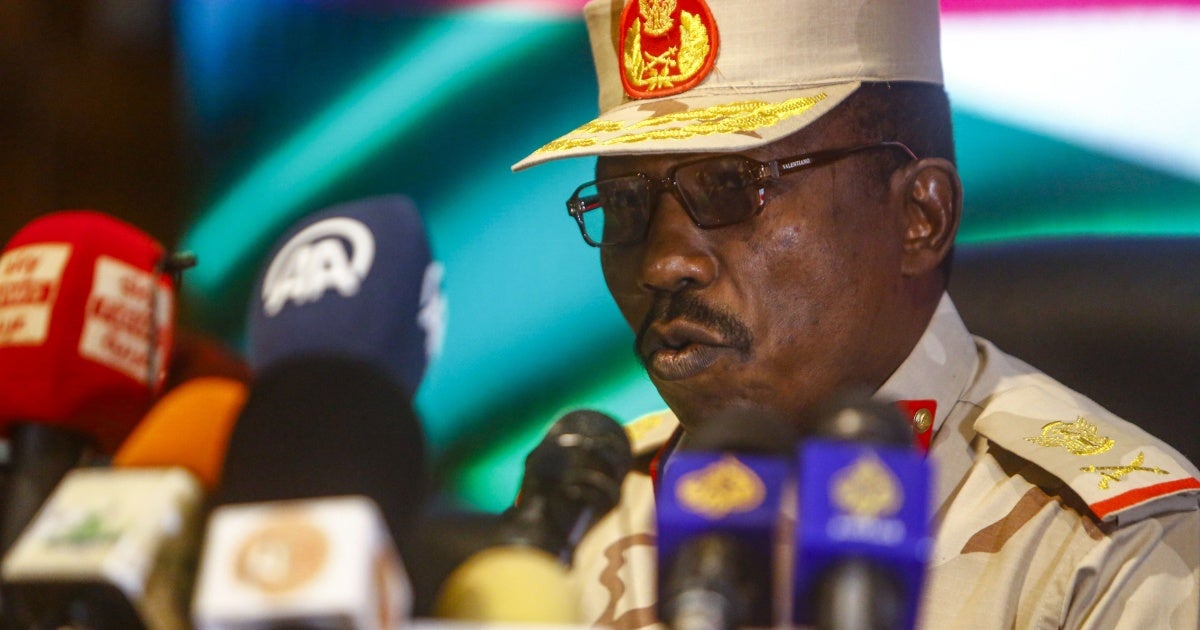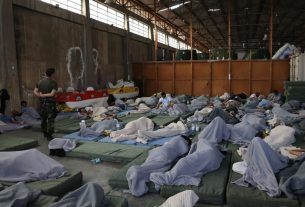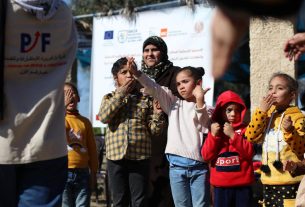(New York) – The United Nations Security Council’s November 8, 2024 sanctions designations for two commanders of Sudan’s Rapid Support Forces (RSF) are a positive first step in ensuring consequences for abuses by the force, Human Rights Watch said today.
The Security Council imposed an international travel ban and asset freeze on the Rapid Support Forces’ head of operations, Major Gen. Osman Mohamed Hamid Mohamed, and the West Darfur RSF commander, Gen. Abdel Rahman Joma’a Barakallah. It was the first time the Security Council has added names to its sanctions list on Darfur since 2006, the first time it has listed members of the Rapid Support Forces RSF, and the first time sanctions were imposed explicitly in response to human rights abuses.
“The Security Council’s action is an important signal that it’s willing to impose consequences on those who bear responsibility for atrocities against Sudan’s civilians,” said Louis Charbonneau, United Nations director at Human Rights Watch. “This move should be the first, but not the last, of such accountability measures.”
Conflict over control of Sudan broke out in April 2023 between the RSF and the Sudanese Armed Forces (SAF) in Sudan’s capital, Khartoum, then spread to other parts of the country. Eighteen months on, the conflict has left 11 million people internally displaced, the largest internal displacement crisis in the world, with parts of Darfur in famine.
In West Darfur, the RSF has committed crimes against humanity and widespread war crimes in the context of an ethnic cleansing campaign against the city’s ethnic Massalit and other non-Arab populations. In North Darfur’s city of El Fasher, both parties and their allies have killed hundreds of civilians and destroyed civilian infrastructure. The RSF continues to attack civilian infrastructure in El Fasher.
The United States proposed the sanctions in August to the Security Council’s Sudan Sanctions Committee, which operates by consensus. The two men were added to the designation list on November 8 following discussions among member states.
In a May report about abuses in the city of El Geneina, the capital of the West Darfur state, Human Rights Watch identified and called for sanctions against Barakallah as one of those with command responsibility over the forces that carried out war crimes and crimes against humanity.
The UN Security Council Panel of Experts on the Sudan had similarly documented in a January report that Barakallah was in El Geneina during the critical period of abuses in the city, between April and June 2023. He was also in Ardamata, a suburb of the city, in November, when RSF forces rampaged the internal displacement camp there, killing and unlawfully detaining civilians.
The US had imposed visa restrictions on Barakallah in September 2023, but the UN Security Council sanctions were the first instance of financial consequences being imposed on Barakallah. Since then, the US has also imposed financial sanctions on him.
The US had also sanctioned Osman Mohamed Hamid Mohamed in May 2024 for crimes committed in the context of fighting in El Fasher.
The UN sanctions on commanders who bear responsibility for the RSF’s war crimes and crimes against humanity are a positive move to address the impunity surrounding those who have committed atrocities in Sudan’s ongoing conflict, Human Rights Watch said. Human Rights Watch reported that forces of Sudan’s warring parties feel so immune to punishment that they have repeatedly filmed themselves executing, torturing, and dehumanizing detainees and mutilating dead bodies.
The Security Council should continue to sanction those responsible for grave abuses and take action against individuals and entities that are violating the existing Darfur arms embargo with impunity, Human Rights Watch said. In September, Human Rights Watch reported that apparently newly acquired equipment produced by companies registered in China, Iran, Russia, Serbia, and the UAE had landed in the hands of the RSF and the SAF.
“The building blocks for accountability put in place through these new sanctions should reinvigorate the Security Council to fulfil its mandate to prevent further atrocities in Darfur,” Charbonneau said. “The Security Council’s decision should form part of a broader strategy to end widespread abuses in Sudan, including by sanctioning others responsible for violations and expanding the Darfur arms embargo to the whole of Sudan to curb the flow of arms likely to be used in further abuses.”



